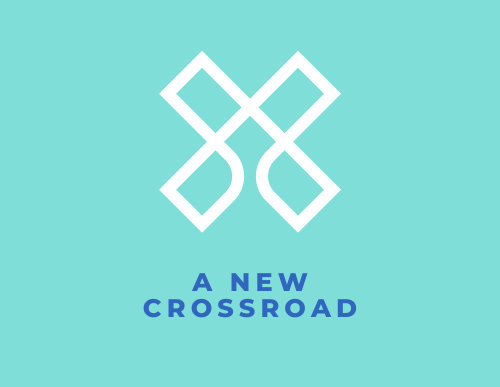The Impact of Anxiety
At A New Crossroad, we understand the profound impact that anxiety can have on an individual’s life. Our mission is to provide comprehensive and effective anxiety treatment to help our clients regain control and improve their well-being.
Understanding Anxiety Disorders
Anxiety disorders encompass a range of conditions characterized by excessive fear or worry. These disorders include generalized anxiety disorder (GAD), panic disorder, social anxiety disorder, and specific phobias. Symptoms can vary widely, from persistent worry and restlessness to physical manifestations like increased heart rate and fatigue.
Generalized anxiety disorder (GAD) is one of the most common anxiety disorders, affecting individuals globally. Patients with GAD often experience excessive worry about various aspects of their lives, which can significantly impede daily functioning. The comorbidity rate for GAD is remarkably high at 81.9%, indicating that many individuals with GAD also suffer from other mental or physical health issues.
Other anxiety disorders, such as panic disorder, are characterized by sudden and intense episodes of fear, known as panic attacks. Social anxiety disorder involves extreme fear of social situations, leading to avoidance behavior and significant distress. Specific phobias are intense, irrational fears of specific objects or situations, such as heights, insects, or flying.
Prevalence of Anxiety Disorders
Anxiety disorders are the most prevalent class of psychiatric disorders. In the United States alone, an estimated 40 million adults aged 18 and older are affected, representing about 18% of the adult population. Globally, approximately 264 million people suffer from anxiety disorders, marking a 15% increase since 2005.
| Disorder | Prevalence |
|---|---|
| Generalized Anxiety Disorder (GAD) | 3.7% (lifetime), 1.8% (annual), 0.8% (monthly) |
| Specific Phobias | 10.3% (12-month) |
| Social Anxiety Disorder | 12.1% (lifetime) |
| Panic Disorder | Varies |
Anxiety disorders are often underrecognized and undertreated, despite their high prevalence and the significant burden they place on individuals and society (PubMed Central). Women are also 1.5 to two times more likely than men to be diagnosed with an anxiety disorder.
Our comprehensive treatment approaches, including pharmacological treatments, psychotherapy, and lifestyle modifications, are designed to address the unique needs of each individual. For more information about our other treatment services, such as bipolar disorder treatment, ADHD treatment, or opioid addiction treatment, please explore our website.
Traditional vs. Alternative Anxiety Treatments
At A New Crossroad, we understand that finding the right anxiety treatment involves exploring both traditional and alternative approaches. This section delves into these methodologies to help you make informed decisions about your mental health care.
Medication & Counseling
Traditional anxiety treatments often include medication and counseling. These methods are particularly beneficial for individuals experiencing moderate to severe anxiety disorders. Medications, such as Selective Serotonin Reuptake Inhibitors (SSRIs) and Serotonin-Norepinephrine Reuptake Inhibitors (SNRIs), are commonly prescribed to help manage symptoms. Patients need to discuss with healthcare providers the benefits, potential side effects, and specific medication options based on their condition (NCBI).
Common Medications for Anxiety
| Medication Type | Example | Notes |
|---|---|---|
| SSRI | Sertraline (Zoloft) | Often the first line of treatment |
| SNRI | Venlafaxine (Effexor) | Useful for multiple anxiety disorders |
| Benzodiazepine | Alprazolam (Xanax) | Not for routine use (PubMed Central) |
Counseling, particularly through Cognitive Behavioral Therapy (CBT), is another cornerstone of traditional treatment. CBT helps patients identify and modify negative thought patterns contributing to their anxiety. Counseling sessions provide strategies for coping with stress and improving emotional regulation.
Utilizing Alternative Therapies
Alternative therapies offer additional options for managing anxiety symptoms with minimal side effects. These therapies can be used alongside traditional treatment methods to enhance overall efficacy (Healthline). Below are some popular alternative approaches:
Common Alternative Therapies for Anxiety
- Herbal Medicine: Remedies like valerian root and kava have shown promise in reducing anxiety symptoms.
- Massage Therapy: Regular massage can help reduce stress and promote relaxation.
- Acupuncture: This traditional Chinese medicine technique has been effective in alleviating anxiety by balancing the body’s energies.
- Yoga and Tai Chi: Both practices combine physical postures, breathing exercises, and meditation to decrease stress.
- Meditation and Mindfulness: These techniques focus on calming the mind and increasing awareness, which can help in managing anxiety.
- Qigong: An ancient Chinese practice involving coordinated movement and breathing exercises to enhance mental and physical well-being.
These complementary therapies are considered natural and safe choices, addressing common health problems and offering a holistic approach to anxiety treatment. They are increasingly accepted and used globally (NCBI).
By integrating traditional methods with alternative therapies, we provide a comprehensive strategy for anxiety treatment. For those seeking additional support, consider exploring our other services such as depression treatment and ptsd treatment. This multifaceted approach ensures that your mental health care is personalized and effective.
Psychotherapy for Anxiety Treatment
At A New Crossroad, we prioritize effective treatment approaches for individuals struggling with anxiety. One of the most impactful methods we utilize is psychotherapy, particularly Cognitive Behavioral Therapy (CBT).
Cognitive Behavioral Therapy (CBT)
Cognitive Behavioral Therapy (CBT) stands as the cornerstone of our approach to anxiety treatment. It is widely recognized as the most effective form of psychotherapy for managing anxiety disorders. CBT involves teaching individuals specific skills to manage anxiety symptoms and gradually resume activities previously avoided due to anxiety.
One key component of CBT is exposure therapy. This method involves exposing patients to feared stimuli in a controlled manner, allowing them to learn to manage their anxiety triggers (NCBI). Exposure therapy can be executed through:
- Imaginal Exposure: Confronting fears through visualization.
- In Vivo Exposure: Directly facing fears in real-life situations.
- Interoceptive Exposure: Encountering physical sensations of fear.
Our experienced therapists at A New Crossroad employ these techniques to help clients build confidence in managing anxiety triggers, thereby reducing overall anxiety levels.
Benefits of Psychotherapy
Psychotherapy, particularly CBT, offers myriad benefits for those dealing with anxiety. It not only addresses the symptoms but also the underlying thought patterns contributing to the disorder. Clients gain valuable insights into their anxiety patterns and develop practical tools to manage them effectively.
Benefits of CBT for Anxiety Disorders:
| Benefit | Description |
|---|---|
| Symptom Management | CBT provides skills to reduce anxiety symptoms. |
| Exposure Therapy | Builds confidence by facing anxiety triggers. |
| Thought Restructuring | Alters distorted thoughts contributing to anxiety. |
| Long-term Results | Empowers clients with tools for lasting change. |
| Versatility | Effective for various anxiety disorders, including PTSD, OCD, panic disorder, GAD, and specific phobias. |
Additionally, CBT is highly versatile and can be adapted to treat various anxiety disorders, including posttraumatic stress disorder, obsessive-compulsive disorder (OCD), panic disorder, generalized anxiety disorder (GAD), social anxiety disorder, and specific phobias.
At A New Crossroad, our dedicated team of professionals is committed to providing tailored CBT interventions that cater to each client’s unique needs. This commitment ensures that individuals receive the most effective and comprehensive care possible. For more information on our diverse treatment options, explore our resources on depression treatment, bipolar disorder treatment, and suboxone treatment.
Pharmacological Treatments
At A New Crossroad, we employ a variety of pharmacological treatments to help manage anxiety disorders. Two of the most commonly prescribed classes of medications are Selective Serotonin Reuptake Inhibitors (SSRIs) and Serotonin-Norepinephrine Reuptake Inhibitors (SNRIs). Both of these drug classes are effective first-line treatments for anxiety due to their favorable benefit-risk profiles.
Selective Serotonin Reuptake Inhibitors (SSRIs)
Selective Serotonin Reuptake Inhibitors, or SSRIs, are commonly used to treat anxiety disorders. SSRIs work by increasing the level of serotonin in the brain, which can help improve mood and reduce anxiety. Serotonin is a neurotransmitter associated with feelings of well-being and happiness.
| SSRI Medication | Typical Dosage (mg/day) | Common Side Effects |
|---|---|---|
| Fluoxetine | 20-60 | Nausea, insomnia, dry mouth |
| Sertraline | 50-200 | Drowsiness, dizziness, fatigue |
| Paroxetine | 20-50 | Weight gain, sexual dysfunction, sleepiness |
| Citalopram | 20-40 | Headache, sweating, increased heart rate |
Serotonin-Norepinephrine Reuptake Inhibitors (SNRIs)
Serotonin-Norepinephrine Reuptake Inhibitors, or SNRIs, are another effective class of medications for treating anxiety. SNRIs work by increasing the levels of both serotonin and norepinephrine, another neurotransmitter involved in mood regulation.
| SNRI Medication | Typical Dosage (mg/day) | Common Side Effects |
|---|---|---|
| Venlafaxine | 75-225 | Nausea, insomnia, sweating |
| Duloxetine | 40-120 | Dry mouth, constipation, loss of appetite |
| Desvenlafaxine | 50-100 | Dizziness, trouble sleeping, excessive sweating |
Considerations for Medication Use
When prescribing SSRIs and SNRIs, it is essential to discuss the potential benefits, risks, and side effects with patients. According to the Mayo Clinic, medications should be tailored to the specific anxiety disorder and any existing mental or physical health conditions.
| Anxiety Disorder | Contact Rate for Health Care (%) |
|---|---|
| Panic Disorder/Agoraphobia | 54.4 |
| Specific Phobias | 27.3 |
While medications can be highly effective, there is a significant undertreatment of anxiety disorders. Only 20.6% of individuals with an anxiety disorder seek professional help according to an NCBI study.
Medications should typically be continued for 6 to 12 months after achieving remission to prevent relapse. Factors such as efficacy, side effects, interactions with other medications, costs, and patient preferences should be considered when developing a treatment plan.
For those pursuing comprehensive mental health care, explore our other services like depression treatment, bipolar disorder treatment, and ptsd treatment.
Lifestyle Modifications for Anxiety
Adopting lifestyle changes can play a significant role in managing anxiety. These modifications focus on routine physical activities and healthier dietary habits to reduce stress and anxiety.
Exercise and Stress Reduction
Regular exercise, especially cardiovascular workouts, has been shown to significantly lower stress and anxiety levels. Engaging in just five minutes of aerobic exercise can start to stimulate anti-anxiety effects. Aerobic exercises like running, swimming, and even brisk walking help in releasing endorphins, which are natural mood lifters.
| Type of Exercise | Duration | Frequency |
|---|---|---|
| Aerobic (e.g., running, cycling) | 30 minutes | 3-5 times per week |
| Strength Training (e.g., weight lifting) | 20-30 minutes | 2-3 times per week |
| Flexibility Exercises (e.g., yoga, stretching) | 20-30 minutes | 2-3 times per week |
Benefits of Regular Exercise:
- Reduces muscle tension
- Enhances blood flow
- Boosts the immune system
- Promotes overall mental well-being
In addition to regular exercise, other stress-reducing techniques such as massage therapy can be beneficial. Swedish massage has been recognized for its effectiveness in relieving muscle tension and promoting blood flow, which helps reduce stress and anxiety.
Dietary Changes and Anxiety
Making dietary adjustments can also have a positive impact on anxiety management. A well-balanced diet that avoids certain stimulants and incorporates anti-anxiety foods can help mitigate anxiety symptoms.
Dietary Recommendations:
- Avoid Caffeine: Caffeine is known to increase anxiety levels. Reducing or eliminating caffeine from your diet can help manage anxiety symptoms.
- Limit Alcohol Intake: Alcohol can interfere with the balance of neurotransmitters in the brain, potentially exacerbating anxiety.
- Quit Smoking: Nicotine can trigger anxiety and stress; quitting smoking is beneficial for mental health.
| Dietary Component | Recommendation |
|---|---|
| Caffeine | Avoid or limit |
| Alcohol | Moderate or abstain |
| Fresh Vegetables & Fruits | Increase intake |
| Whole Grains | Prefer over processed foods |
Incorporating certain nutrients and foods into your diet can also be beneficial:
- Omega-3 Fatty Acids: Found in fish, flaxseeds, and walnuts, omega-3s help reduce anxiety by supporting brain health.
- Magnesium: Present in leafy greens, nuts, and seeds, magnesium helps in regulating neurotransmitters.
- Probiotics: Found in yogurt and fermented foods, probiotics can improve gut health, which is linked to mood and mental health.
Evidence suggests that lifestyle modifications such as moderate exercise and avoiding dietary triggers can be beneficial for anxiety treatment. Incorporating these changes can help individuals manage their anxiety more effectively, promoting overall well-being.
For more information on medication-based treatment options, visit our section on pharmacological treatments. Additional resources on managing anxiety through various treatment approaches can be found in our articles on depression treatment and ptsd treatment.





